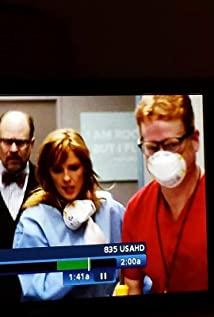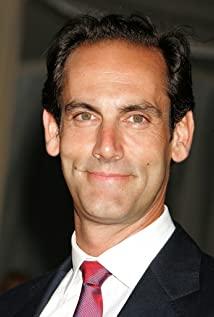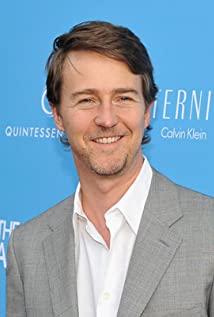First of all, this is not a work depicting Reagan, a middle-aged man who wants to turn around by playing a drama on Broadway, so it is not the true character of Keaton, the actor who played the role of Reagan, as Keaton himself denied it. There is a fundamental difference with Reagan. Because drama is more "artistic" than movies in the eyes of ordinary people, Reagan refused to act in "Birdman 3" because he didn't think there was any artistic future in acting as a hero who relied on the adaptation of anime. As a result, he quit and switched to stage plays. He just wanted to do something more meaningful, and he insisted on it for more than 20 years. Therefore, rather than saying that Reagan wanted to "turn over" through the drama he created with his heart, he wanted to be a higher self. Because Keaton did refuse to act in "Batman 3", he has been unknown in Hollywood for 20 years since then. This makes people think that he played in this film Reagan is his true character. Although the fate of the actor and the role is somewhat similar, But the essential difference is still obvious; even so, it makes sense to say that "Salted Fish Turns Over" is attached to the actor Keaton himself.
Secondly, Reagan devoted all his energy to creating his drama not (or not just) as his daughter said-in order to create a sense of "existence." The pursuit of success and fame in one fell swoop is certainly a higher pursuit of human nature. Moreover, he and his ex-wife also mentioned that he wanted to succeed, otherwise he would become a foil for others: the same plane crashed and the headline of the newspaper was a celebrity. not him. This kind of desire is human nature, but it is easy to give people the illusion: Reagan is a small crouch who is very eager for success. In fact, Reagan was once brilliant. His "Birdman 1 and 2" had long been famous. Even now the drama still needs to be promoted by his previous name, and the female drama critic also admitted that he is a celebrity. So, It doesn't make sense to say that he broke his house and engaged in drama for a certain sense of existence. When his daughter said that he was trying to "bring out the sense of existence," he was silent. He knew that her daughter misunderstood him deeply, and that this misunderstanding was caused by him himself. He had never communicated well with his daughter. Besides, if he really did it for some kind of "famous" and "profit", for the so-called "sense of existence", he would not be able to refuse to act as a hero adapted from anime, because everyone knows that this would be fame and fortune; if He had to insist that his daughter’s knowledge was right. Then, at the end of the film, his drama successfully conquered the audience, and when fame and fortune were close in front of him, he turned and jumped downstairs or disappeared from playing again. How does this explain? Woolen cloth? Obviously, Reagan was not for a certain sense of existence, but for his inner persistence: for stage art.
Third, does "Birdman" cruelly satirize Hollywood's pragmatism? Debatable. If you think that stage art is higher than film art, then, no matter how difficult it is, it is incomparable with film art. Generally speaking, movies should take the popular route. If Reagan continues to mix in Hollywood and suffers for the sake of film art, it makes sense to say that it satirizes Hollywood. The film did mention that Reagan could not find suitable good actors, and those who were a bit famous were robbed of the movie. This can only show how the secularism of those actors has anything to do with Hollywood's pragmatism. Don't forget, Reagan's dilemma of not being able to find a suitable actor was finally solved by Shannon, a famous Hollywood star. Moreover, as the French philosopher Barthes quoted in the film said, the current cultural dissemination, the movies of animation heroes (many Hollywood blockbusters are adapted from cartoons) are indispensable, that is to say, they are also "spreading culture." , It’s just that the way is different now. If I have to say that the film satirizes something, I think it mainly satirizes the "New York Rules" of Broadway, and satirizes the so-called stage art. Does the "stage" have to be reserved for those who have received professional training; stage art can only be provided to those "a thousand rich white men who are worried about not having a snack or coffee after watching"; a good stage A drama can be destroyed by only one critic, because the critic can influence those few people who watch the drama? Of course, the film is more satirizing the audience. It is precisely because of the audience's vulgarity that the stage plays are difficult. It is because of their preference: they like "action" and dislike "philosophical rubbish" that makes Hollywood movies. developing.
Fourth, Reagan did stick to the art in his heart, but why did he freeze his life by jumping off the building? I'm afraid it can only be explained in four words: to die and make clear. When Reagan was in high school, he was encouraged by the dramatist Raymond Carver. Since then, he has embarked on the path of an actor. It is this encouragement that made him refuse to play Birdman 3 and 4, and he has an inner art. hold fast. He worked hard to write, direct, and act in Carver's plays, which means he did his best to reward his confidant. After he performed Carver's plays very successfully, of course, we think that he will make a comeback from then on. Under the anticipation of his relatives, the suggestion of his friends, and the constant noise of the "bird ghost" in his heart, he knows whether the art in his heart can be maintained. Then how can he show his ambitions can only be wise to death: He made Carver’s plays a dead end, because no one would bloody the theater like him to keep the performance realistic; moreover, his death can also Let his daughter understand that his persistence and efforts are not for "existence"; let his ex-wife know that he is not a person who "confuses admiration and love" in any way, because anyone will only treat those who are the same. With regard to the things of his own life, he would respond to the disappreciation of his closest people in such a fierce manner as throwing a kitchen knife. It was understandable that Reagan regarded his wife’s worship as love; he also convinced his friends and partners to believe him. He is really engaged in art, because once he died he showed his spirit of "hearing the Tao in the morning, and dying in the evening".
Of course, a very important point is that under the "New York Rules", he didn't really feel that he was "unsuitable for drama", but he no longer had the strength to fight against various rules, begging for art to comply with the rules, and to Reagan. It is a shame to say, therefore, his death is also a resistance to New York rules.
In addition, Reagan is an extremely realistic person in stage art. As a director, he can make accidents to drive away actors he thinks is not suitable. He can also bankrupt his family for only an actor he thinks is worthwhile; A drama actor, he has a strong ability to adapt to the scene, he also took out a real gun and sprinkled the stage for a word of his partner. Such a person who is extremely realistic, he has already identified himself as a role in the play. Therefore, when he realized that his role seemed to be "following the shadow" with himself, it heralded his last leap.
Some people may question, why didn't Reagan die on the stage instead of dying in the later ward? Wouldn't it be better to die on the spot? In fact, this can be explained by the following points:
(1) Reagan is a very realistic person. The character he played is a person who is extremely useless and doesn't shoot well. He shoots at his head but hits his nose, which is exactly what the plot needs. ;
(2) the titles cited • Raymond Carver's "belated debris" echoes the words:
"- found this life want?
- I found it.
- What do you want?
- —Be the one to be loved and feel loved on the earth.”
After the great success of Reagan’s play, Reagan wanted to verify whether he could still be the person who “be loved” and “feel loved”, but he succeeded in finding Returning to his daughter’s love for him, his ex-wife’s admiration for him (love);
(3) He wants to know whether the persistence at the price of blood can change the prejudices of the critics, and he also wants to know that the real effort of drama can How many audiences he attracts, he is testing the conscience of human nature in order to verify whether there is hope in the stage play; of
course, if Reagan’s death is linked to his mental condition, it can be from psychoanalysis, psychology, sociology and even pathology. Thinking from a perspective, for example, he suffered from depression, schizophrenia, mid-life crisis, high anxiety level and other reasons, but this will undoubtedly reduce the artistic value and social significance of the film. (by:heshenggen/2015-01-23)
View more about Birdman or (The Unexpected Virtue of Ignorance) reviews











